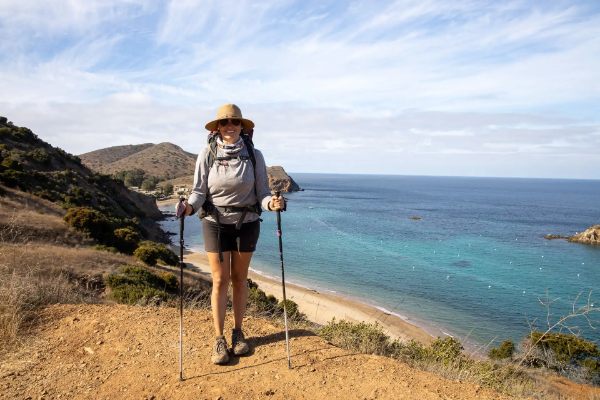Camping is a wonderful way to connect with nature, relax, and create memories. However, the experience can quickly turn unpleasant if you don’t pack the right gear. To help you prepare, this article lists and explains the essential items you should bring for a successful camping trip.
Tent and Shelter
A sturdy tent is the foundation of your camping gear. Choose one suitable for the size of your group and the weather conditions. A good tent should be waterproof, durable, and easy to set up. Don’t forget the following items:
Tent stakes and guylines: These keep your tent stable in windy conditions.
Ground tarp: Place this under your tent for extra protection against moisture and sharp objects.
Rainfly: If your tent doesn’t have a built-in rainfly, bring one to keep you dry during rain.
Sleeping Gear
Sleeping well outdoors is crucial for a pleasant camping experience. Here are some items to ensure comfort:
Sleeping bag: Choose a bag rated for the lowest temperature you expect.
Sleeping pad or air mattress: These provide insulation and cushioning between you and the ground.
Pillow: A small camping pillow or a pillowcase stuffed with clothes works well.
Extra blankets: These are useful for added warmth on cold nights.
Cooking Equipment
Good food makes any camping trip better. Pack items that will help you prepare meals efficiently:
Portable stove or camping grill: Reliable heat sources for cooking.
Fuel: Bring enough fuel for the duration of your trip.
Cookware: Lightweight pots, pans, and utensils for preparing and serving food.
Reusable plates and cups: Durable and environmentally friendly.
Cooler: A high-quality cooler keeps perishable food fresh.
Food storage containers: Use these to keep food safe from wildlife.
Dishwashing supplies: A small basin, biodegradable soap, and a sponge are essential for cleaning up.
Food and Drinks
Plan your meals ahead of time and pack non-perishable and easy-to-prepare items. Suggestions include:
Dry goods: Granola, trail mix, pasta, rice, and instant oatmeal.
Canned goods: Soups, beans, and vegetables are convenient options.
Fresh produce: Apples, carrots, and other hardy fruits and vegetables.
Snacks: Energy bars, jerky, and chips for quick energy.
Water: Bring enough for drinking, cooking, and cleaning, or a water filtration system if you’ll refill from natural sources.
Clothing
Proper clothing ensures comfort and safety during your camping trip. Always pack according to the weather:
Base layers: Moisture-wicking tops and bottoms for warmth and dryness.
Insulating layers: Fleece or down jackets for colder temperatures.
Rain gear: Waterproof jackets, pants, and boots to stay dry.
Sturdy shoes: Hiking boots or trail shoes for exploring.
Extra socks and underwear: Keep your feet dry and comfortable.
Hat and gloves: Protect yourself from the sun or cold.
Swimsuit: Bring one if you’ll be near a lake or river.
Navigation Tools
Even if you’re familiar with the area, navigation tools are a must:
Map and compass: Traditional tools that never run out of batteries.
GPS device: Handy for precise navigation in unfamiliar areas.
Trail guide: Provides information about the terrain and landmarks.
Safety and First Aid
Accidents can happen, so it’s important to be prepared:
First aid kit: Include bandages, antiseptic, tweezers, pain relievers, and any personal medications.
Multi-tool or knife: Useful for cutting, repairing, and other tasks.
Fire-starting tools: Matches, lighters, and fire starters for emergencies.
Whistle: Helps you signal for help if needed.
Insect repellent: Protects you from bugs and bites.
Sunscreen: Essential for shielding your skin from harmful UV rays.
Lighting
Proper lighting is necessary for safety and convenience at night:
Headlamp: Keeps your hands free while providing focused light.
Flashlights: Pack an extra one in case of emergencies.
Lantern: Provides ambient light for your campsite.
Spare batteries or chargers: Ensure your devices are powered.
Personal Items
Don’t forget the essentials for your comfort and hygiene:
Toiletries: Toothbrush, toothpaste, biodegradable soap, and a quick-dry towel.
Toilet paper: Always pack some, as campsites may run out.
Hand sanitizer: Keeps your hands clean when water isn’t available.
Lip balm: Protects your lips from sun and wind.
Trash bags: Carry out all your waste to leave no trace.
Entertainment and Comfort
Make your camping trip more enjoyable with these extras:
Books or e-reader: Relax with a good story.
Cards or games: Fun for group activities.
Binoculars: Great for wildlife watching.
Camera: Capture memories of your trip.
Camping chairs: Lightweight chairs provide a comfortable place to sit.
Hammock: Relax and enjoy the view between the trees.
Extras for Specific Activities
If your camping trip includes specific activities, pack accordingly:
Fishing gear: Rods, reels, and bait for anglers.
Climbing gear: Harnesses, ropes, and helmets for climbers.
Water sports equipment: Kayaks, paddles, or inflatables for aquatic adventures.
Tips for Packing
Make a checklist: Write down everything you need and check it off as you pack.
Pack efficiently: Use storage bins and dry bags to organize your gear.
Test your equipment: Set up your tent and test your stove before leaving.
Plan for emergencies: Know the location of the nearest hospital and have a backup plan in case of bad weather.
Conclusion
Being well-prepared is the key to an enjoyable camping trip. By bringing the right gear and planning ahead, you’ll be ready for any challenges and able to focus on making the most of your time in nature. Use this list as a guide, tailor it to your specific needs, and enjoy your adventure!
Related topics:
- When Do Camping Supplies Go on Sale?
- What Do You Need for a Camper
- Where Do Campers Go to the Bathroom?

